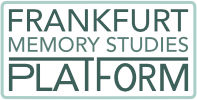Sorry Isn’t Enough: Die literarische und multimediale Inszenierung der ,Sorry Politics’ und das Bemühen um Aussöhnung zwischen indigenen und nicht-indigenen Gruppen in Australien und Kanada
Das Dissertationsvorhaben will unterschiedliche Formen der literarischen und multimedialen Inszenierung dieser Sorry Politics und der anzustrebenden Aussöhnung zwischen der indigenen und nicht-indigenen Bevölkerung in Kanada und Australien sowie deren Auswirkungen auf die (Neu-)Konstruktion kollektiver Identität am Beispiel der Problematik der Stolen Generation und der Residential Schools vergleichend untersuchen. Welche Rolle spielt die Erinnerung und das Gedächtnis in diesen Zusammenhang? Welchen Einfluss haben Multimedia (TV-Berichterstattung, Film, digitale Medien und Internetblogs) auf diese Debatte? Wie partizipiert die zeitgenössische Literatur indigener und nicht-indigener Autoren und Autorinnen in diesem Prozess? Welche Unterschiede und Gemeinsamkeiten lassen sich für den australischen und kanadischen Kontext ermitteln und welche allgemeineren Erkenntnisse auf dieser Grundlage über den Zusammenhang von Vergangenheit und Gegenwart, Identitätskonstruktion, Erinnerung und Aussöhnung in nachkolonialen Gesellschaften im 3. Jahrtausend gewinnen, in welchen die ‚Reconciliation’ bzw. Aussöhnung von den Vereinigten Nationen zur Herausforderung des Millenniums erklärt wurde. Diese Fragen sollen mit Hilfe ausgewählter und miteinander in Beziehung zu setzender Theorien literatur-, kultur- und medienwissenschaftlicher Provenienz diskutiert und auf Grundlage umfassender Analysearbeiten eines ausgewählten Korpus von Primärliteratur, Filmen und multimedialer und virtueller Dokumente und Inszenierungen beantwortet werden.
Sorry isn’t enough: The performance of ‘Sorry Politics’ in literature and (multi)media and the effort to reconcile indigenous and non-indigenous groups in Australia and Canada
This dissertation project would like to examine various forms of literary and medial staging of the ‘Sorry Politics’ and the endeavor of reconciliation between indigenous and non-indigenous population in Canada and Australia. Furthermore, it seeks to explore the consequences and influences that this multi-media processing might have on the (re)construction of collective identity with regard to the legacies of the “Stolen Generations” and the “Residential School” system. Which roles do memory and remembrance play in this context? Which influence do the media (TV-broadcasting and news, movies, digital media and internet blogs) have on this debate? How does contemporary literature of indigenous and non-indigenous writers participate in this process? Which differences and/or mutualities are traceable for the Australian and Canadian context in this regard? And which general conclusions might be drawn from the analysis of the connection between past and present, the construction of identity, memory and reconciliation in postcolonial societies, since the United Nations have declared ‘Reconciliation’ to be a major challenge to the world in the third millennium? These questions would be discussed with the support of acknowledged theories of research provenience, deriving from the fields of media, literature and culture studies, which are to be intersected and applied to the specific contexts in Australia and Canada. This discussion will be based on a comprehensive analysis of a selected corpus of (primary) literature and movies.


